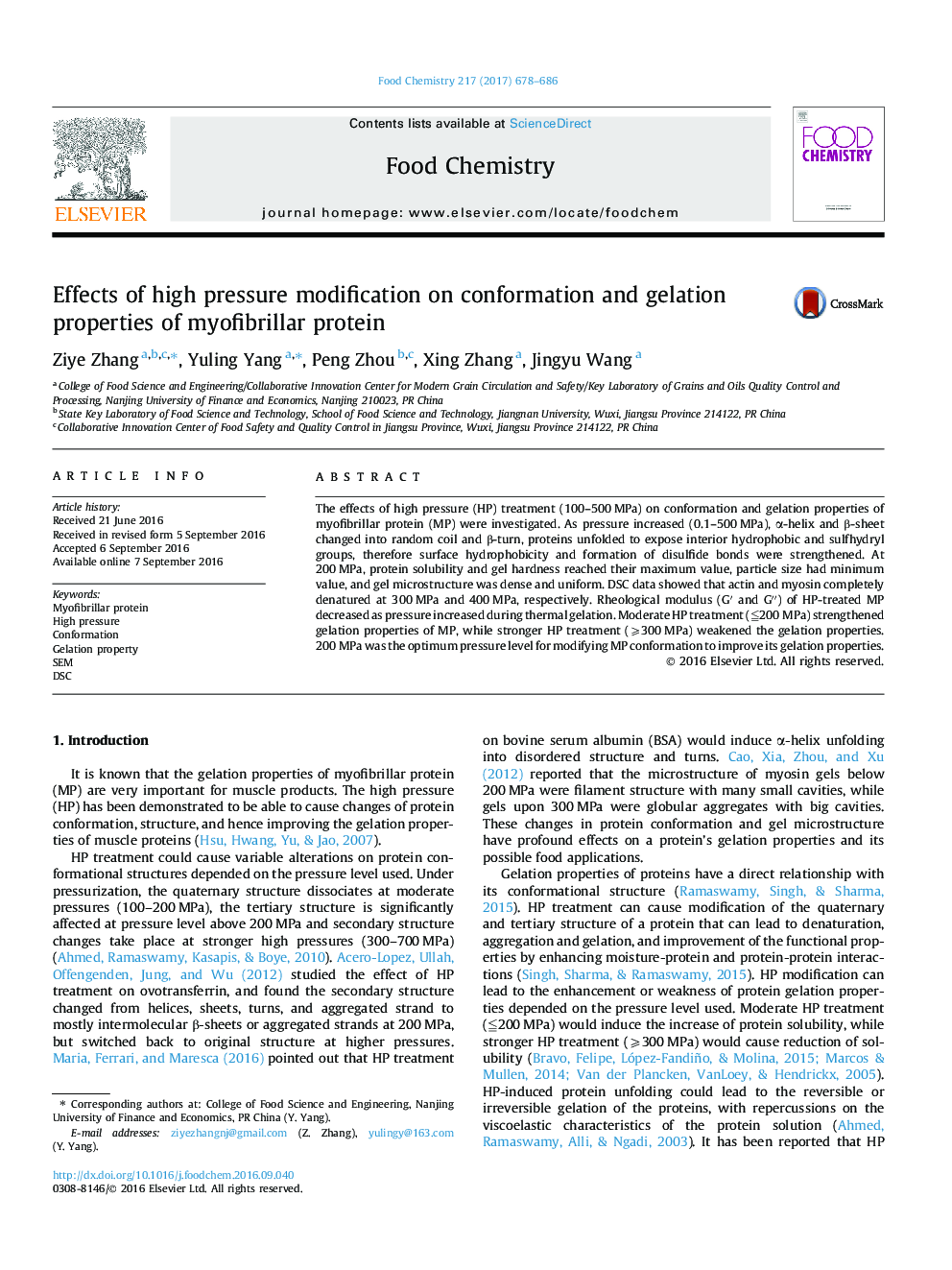| Article ID | Journal | Published Year | Pages | File Type |
|---|---|---|---|---|
| 7586798 | Food Chemistry | 2017 | 9 Pages |
Abstract
The effects of high pressure (HP) treatment (100-500 MPa) on conformation and gelation properties of myofibrillar protein (MP) were investigated. As pressure increased (0.1-500 MPa), α-helix and β-sheet changed into random coil and β-turn, proteins unfolded to expose interior hydrophobic and sulfhydryl groups, therefore surface hydrophobicity and formation of disulfide bonds were strengthened. At 200 MPa, protein solubility and gel hardness reached their maximum value, particle size had minimum value, and gel microstructure was dense and uniform. DSC data showed that actin and myosin completely denatured at 300 MPa and 400 MPa, respectively. Rheological modulus (Gâ² and Gâ³) of HP-treated MP decreased as pressure increased during thermal gelation. Moderate HP treatment (â¦200 MPa) strengthened gelation properties of MP, while stronger HP treatment (⩾300 MPa) weakened the gelation properties. 200 MPa was the optimum pressure level for modifying MP conformation to improve its gelation properties.
Related Topics
Physical Sciences and Engineering
Chemistry
Analytical Chemistry
Authors
Ziye Zhang, Yuling Yang, Peng Zhou, Xing Zhang, Jingyu Wang,
